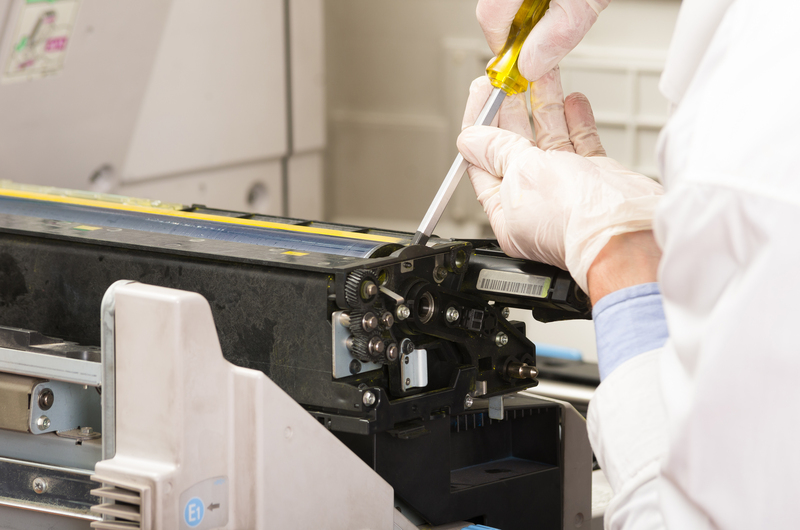From Waste to Resource: The Transformative Benefits of Metal Recycling
In today's rapidly evolving world, the need for sustainable practices has never been more critical. As industries and consumers generate vast amounts of waste, finding ways to convert this waste into resources is an essential part of ensuring our industrial practices are eco-friendly. One of the leading methods in this transformative journey is metal recycling.
The Importance of Metal Recycling
Metal recycling not only reduces waste but also provides numerous environmental, economic, and social benefits. Transitioning from waste to resource is not just about mitigating waste; it's about creating a more sustainable industrial future.
Environmental Benefits of Metal Recycling
- Conservation of Natural Resources: Recycling metals aids in the conservation of finite natural resources. By reusing metals, we reduce the need for mining and the environmental degrading activities associated with it.
- Reduction in Energy Consumption: Recycling metals often require significantly less energy compared to the energy required to mine and process new raw metal ores. For instance, recycling aluminum saves up to 95% of the energy needed for new aluminum production.
- Decreased Pollution: By reducing the need for extracting and processing raw materials, metal recycling helps lower air and water pollution levels. The production processes for metals like steel and aluminum are notably resource-intensive and contribute to substantial greenhouse gas emissions.
- Landfill Diversion: Recycling keeps metals out of landfills, reducing the harmful leachates and gases that can contribute to environmental pollution.
Economic Advantages
The economic impact of metal recycling is multifaceted and profound. It fosters industry growth while supporting local and global economic frameworks.
- Job Creation: Metal recycling industries create numerous job opportunities, ranging from collection and sorting to smelting and production. In regions where mining jobs are declining, recycling can provide new employment avenues.
- Cost Efficiency: The recycling process is often cheaper than mining new ores. The savings from reduced energy use and bypassing extraction processes translate into lower overall production costs.
- Market Stability: Recycling provides a steady supply of essential materials, helping stabilize markets prone to volatility due to resource scarcity. Industries reliant on metals can better manage production costs and maintain competitive prices.
Social Impact and Community Benefits
Metal recycling contributes positively to societies, enhancing living standards and fostering community resilience.
- Reduced Environmental Health Risks: By decreasing pollution and conserving resources, recycling helps improve public health outcomes and enhances the quality of life in communities worldwide.
- Educational Opportunities: The adoption of recycling practices often comes hand-in-hand with educational programs to raise awareness around sustainability, leading to more environmentally-conscious communities.
- Community Empowerment: Through local initiatives and job creation, communities can harness recycling efforts to empower residents, creating self-sufficient and thriving regions.
Challenges in Metal Recycling
Despite the clear benefits, the journey of metal recycling from waste to resource is not without its challenges:
- Collection and Sorting: Efficient collection and sorting of metals is crucial but can be logistically challenging. Contaminated metal scrap can affect the quality and profitability of the recycling process.
- Technical Limitations: Some metals are more challenging to recycle than others. For example, composite materials or alloys might require complex processes to separate viable metals.
- Market Dynamics: Fluctuating market demands can impact the profitability of recycling operations, necessitating adaptive strategies to maintain economic viability.
Technological Innovations in Metal Recycling
To overcome the existing challenges, several technological innovations have emerged, striving to enhance the efficiency and effectiveness of metal recycling:
- Advanced Sorting Technologies: Technologies such as magnetic separation, eddy current separation, and sensor-based sorters have drastically improved the speed and accuracy of metal sorting processes.
- Hydrometallurgical Processes: These processes use aqueous chemistry to recover metals from ores and waste, thereby reducing reliance on traditional, pollutive methods.
- Robotics and Automation: Automated systems are now being implemented to handle sorting and processing tasks, enhancing efficiency and reducing the need for manual labor.
- Utilization of AI and Machine Learning: With AI, the sorting process becomes more accurate and efficient, predicting and separating metals based on precise algorithms.
Steps to Enhance Metal Recycling Practices
As we strive to maximize the potential of metal recycling, certain steps can be taken to improve current systems:
- Invest in Infrastructure: Developing robust infrastructure for collection and processing facilities will streamline operations and improve output quality.
- Promote Education and Awareness: Informing the public about the benefits and processes of metal recycling can lead to higher participation rates and better sorting at the source.
- Policy Support: Governments should consider policies that incentivize recycling activities, including tax breaks, subsidies, or stricter regulations on landfill use.
- Industry Collaboration: Encouraging collaboration between recycling companies and manufacturers can help create closed-loop systems where waste is constantly cycled back into production.
Conclusion: A Future Built on Recycled Metals
The transformation of waste into a valuable resource through metal recycling has multi-faceted benefits that extend beyond ecological advantages. It plays a pivotal role in a sustainable economy, creating opportunities and fostering innovation. As we continue to advance technologically and socially, adopting and optimizing recycling processes is key to shaping a thriving, sustainable world.
```
